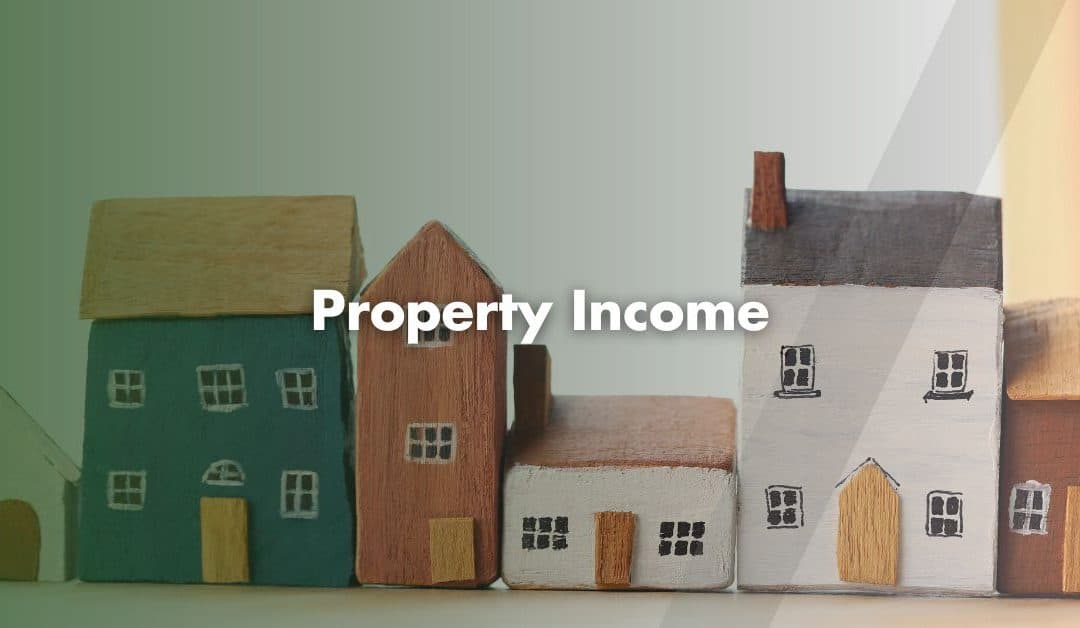Renting out property can be a fantastic way to earn extra income. To make the most of your rental income and avoid any unexpected tax bills, you need to understand how Property Income works.
What is Property Income?
Property Income is the money you earn from land or buildings. The most familiar type is rent from tenants, but there are other forms you may not have considered:
- Renting out a parking space or garage
- Leasing land to another person
- Letting storage units or lock-ups
- Charging tenants for the use of furniture or appliances
If you earn money from property but do not run a trade, HMRC will treat it as Property Income. So, renting out an empty garage generates Property Income. However, using the garage as a paid workshop counts as Trading Income.
How and When Do You Pay Tax on Property Income?
You pay tax on profit, not total rent. Profit is your rental income minus Allowable Expenses.
Every landlord benefits from the £1,000 Property Allowance each tax year. If your total Property Income is below this threshold, you do not need to inform HMRC. You must report it once you earn more than £1,000.
If your net income exceeds £2,500 after expenses, you need to complete a Self Assessment tax return.
Claiming Allowance Expenses
Allowable Expenses are costs that are “Wholly and Exclusively” for your rental business. These include:
- Repairs and maintenance, such as fixing leaks or broken boilers
- Cleaning and gardening services
- Landlord insurance for buildings, contents and liability
- Utility bills and Council Tax you pay as the landlord
- Letting agent and property management fees
- Accountant fees and advertising costs to find tenants
- Business-related phone calls, stationery and travel expenses
You can also claim Replacement of Domestic Items Relief for items such as sofas, beds, fridges or curtains. This only applies to replacements, not first-time purchases. If you upgrade, for example from a sofa to a sofa bed, you can only claim the cost of a like-for-like replacement.
Mortgage Interest and Tax Relief for Property Income
Since April 2020, individual landlords cannot deduct mortgage interest directly from rental income. Instead, you receive a 20% tax credit on your interest payments. This does not affect limited companies and they can still claim full mortgage interest as an expense.
Higher-rate taxpayers may now pay more tax than before, so if you are higher-rate, you should review your ownership structure.
Reporting Rental Income to HMRC
You must report rental income if your gross Property Income exceeds £10,000 or your net income after expenses is over £2,500. Late submissions can lead to penalties and interest, so mark the following dates in your calendar:
- Register for Self Assessment by 5th October
- Submit paper returns by 31st October
- Submit online returns and tax payments by 31st January
Dealing with Rental Losses
If your expenses are greater than your rental income, you have a rental loss. You cannot offset this loss against other personal income, but you can carry if forward to offset against future rental profits.
If you own multiple properties, HMRC considers them one UK property business, so losses from one property can offset profits from another.
Selling a Rental Property and Capital Gains Tax
Selling a rental property that is not your main residence usually triggers Capital Gains Tax. Current rates are:
- 18% for Basic-Rate taxpayers
- 24% for Higher and Additional-rate taxpayers
You must report and pay the tax within 60 days of selling the property. You should also keep thorough records of purchase costs, improvement expenses and selling fees to reduce your taxable gain.
Contact Us
We are not just accountants; we are Chartered Accountants with one of the most reputable and premium accounting bodies. We are registered and regulated by ACCA; so you can rest assured that you are in good hands. Knowing this, don’t hesitate to get in touch with us if you require assistance: Pi Accountancy | Contact Us
This article is for general informational purposes only and does not constitute legal or financial advice. While we aim to keep our content up to date and accurate, UK tax laws and regulations are subject to change. Please speak to an accountant or tax professional for advice tailored to your individual circumstances. Pi Accountancy accepts no responsibility for any issues arising from reliance on the information provided.

